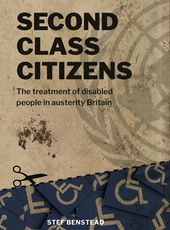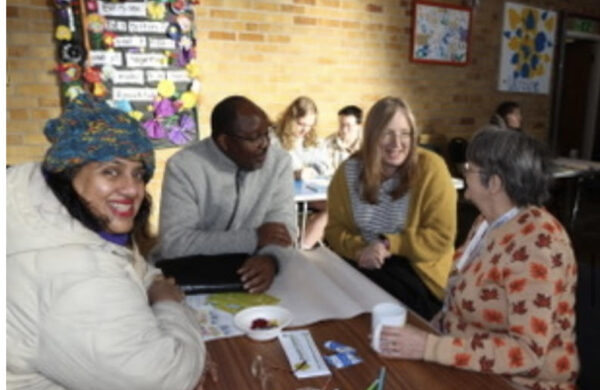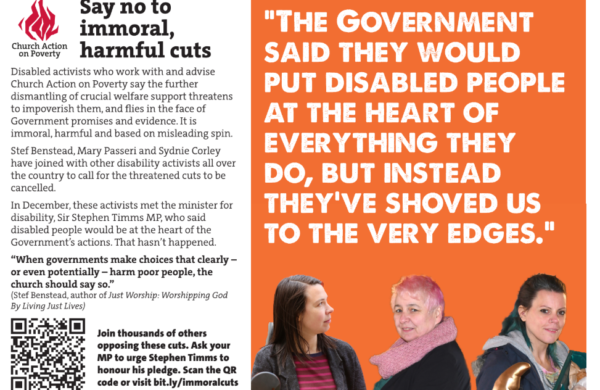Humanity, dignity, poverty
Church Action on Poverty trustee Stef Benfield reflects on what scripture has to say about Christians campaigning for justice.
Should Christians work for structural change? There is a lot that could be said on this from a range of viewpoints. I’m going to use just one here: God’s law for Israel.
God gave the Israelites structures – laws – to prevent and eradicate poverty. His law specifically forbade exploitation and required generosity.
God forbade harsh treatment of workers. Pay was to be prompt, even daily, and adequate to the work done (Leviticus 25:35-43; Deuteronomy 24:14-15). Owners were not to hoover up to themselves all the available profit, but were to deliberately leave some available to the poor (Leviticus 19:9-10, 23:22). Even animals were not to be treated harshly and worked for all they were worth, but to be looked after (Deuteronomy 25:4). The interest was not the money that could be made but the wellbeing of the workers.
If we followed God on this, there would be no job insecurity, no unpredictable hours, no overwork, no inadequacy of pay. Toxic jobs wouldn’t exist. There would be dignity in all work.
God required those with power to use it for good. The laws on gleaning mean that power is not to be used to grow wealthy but to support the poor. Laws on debt said that lending is not a means to more money, but a way to use your money to help others. If you could lend to someone who needed it, then do so – in the knowledge that debt is cancelled every seven years, essential items could not be taken as pledge, and usury is forbidden (Deuteronomy 15:7-11, 24:6,10-13). You were more likely to make a loss than a profit, and that was how God expected it to be.
For people who fell into poverty, God made structures to protect and provision them. This included the gleaning laws (access to food and work) and debt cancellation. It also included redemption of (extended) family property, based not on the worthiness of the poverty-stricken relative but their relation to one who could redeem (Leviticus 25:25-28). If a person had to sell themselves into servitude, it was for a fixed period of six years, with the option to buy one’s self out if the means became available. And in the seventh year, the person was not merely released from their job contract but restored to prosperity: the employer was to send the person away with gifts in accordance with not the contribution of the employee but the prosperity of the employer (Deuteronomy 15:12-15).
Finally, if all these remedies failed and a person had to sell their property outside of the family, then every 50th year was a year of Jubilee: all land went back to the original owners (Leviticus 25:28). It was a divine reset and redistribution that prevented both poverty and gross wealth.
Jubilee was a second chance for the very lowest, and a reminder to the richest that their prosperity is but a gift from God to use for others.
In these structures, God imbued humanity with dignity. The random chance of charity has little place here: gifts were made at the command of God, not the whim of the rich; and the primary mode of action was through the dignity of the law. Let us strive for the same dignity.

Join our book group
During March 2020, Church Action on Poverty staff and supporters will be reading Stef Benstead’s new book Second Class Citizens: The treatment of disabled people in austerity Britain. At the start of April we’ll discuss the book in a blog post here, and on our Facebook and Twitter pages.
If you’re interested, please get a copy of the book to read, and let us know you’ll be joining in!



